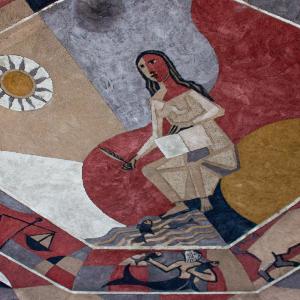Eligibility for the program requires a completed university degree of at least three years, with a total grade corresponding to at least “gut” (2,3) in the German system, and a basic knowledge of ancient Greek (the language requirement can also be completed concurrently). The deadline for applications for the Winter Semester 2024/25 is July 15, 2024.
International applicants must, in addition, and after receiving admission to the program through the application described here, apply to the International Office of the LMU for permission to study at the LMU by July 15, 2024. For this reason, we urge them to apply to for the Masters Program by June 15, 2024.
In order to apply, the following documents should be submitted:
- A curriculum vitae (including date and place of birth as well as a current address).
- A copy of the university diploma; in case the diploma is not yet available at the time of application, a transcript of records showing completion of the equivalent of 150 ECTS points (roughly 5 semesters), and documenting all coursework completed thus far.
- Proof of knowledge of English at the B2 level (intermediate) as well as of ancient Greek at the B1 level (these can, if necessary, be submitted within the first year of studies).
- A sample essay written by the applicant (e.g., for a seminar) in one of the thematic areas listed below.
Documents should be submitted by email or post to:
Andreas.Anagnostopoulos@lrz.uni-muenchen.de
Andreas Anagnostopoulos
LS III Philosophie
Geschwister-Scholl-Platz 1
80539 München
Decisions about admission to the course of study are normally made within a couple of weeks, and at the latest by August 1, 2024.
Thematic Areas: Metaphysics and Ontology; Natural Philosophy and Science; Soul, Mind and Life; Epistemology, Logic and Argumentation Theory; Ethics and Moral Philosophy; Political Philosophy; Philosophy, literature and other forms of discourse; Aesthetic theory; Textual Criticism and Textual Transmission

